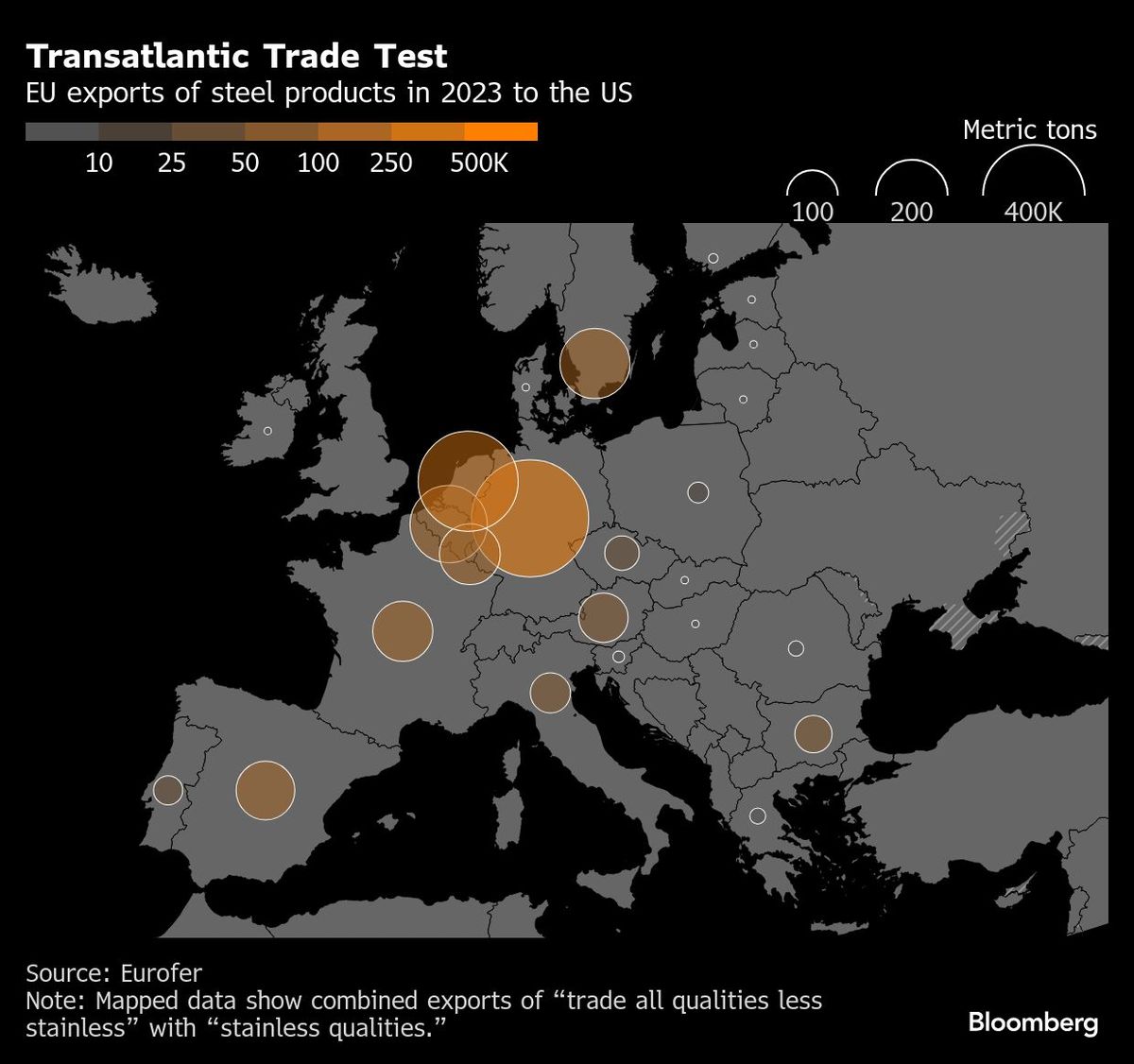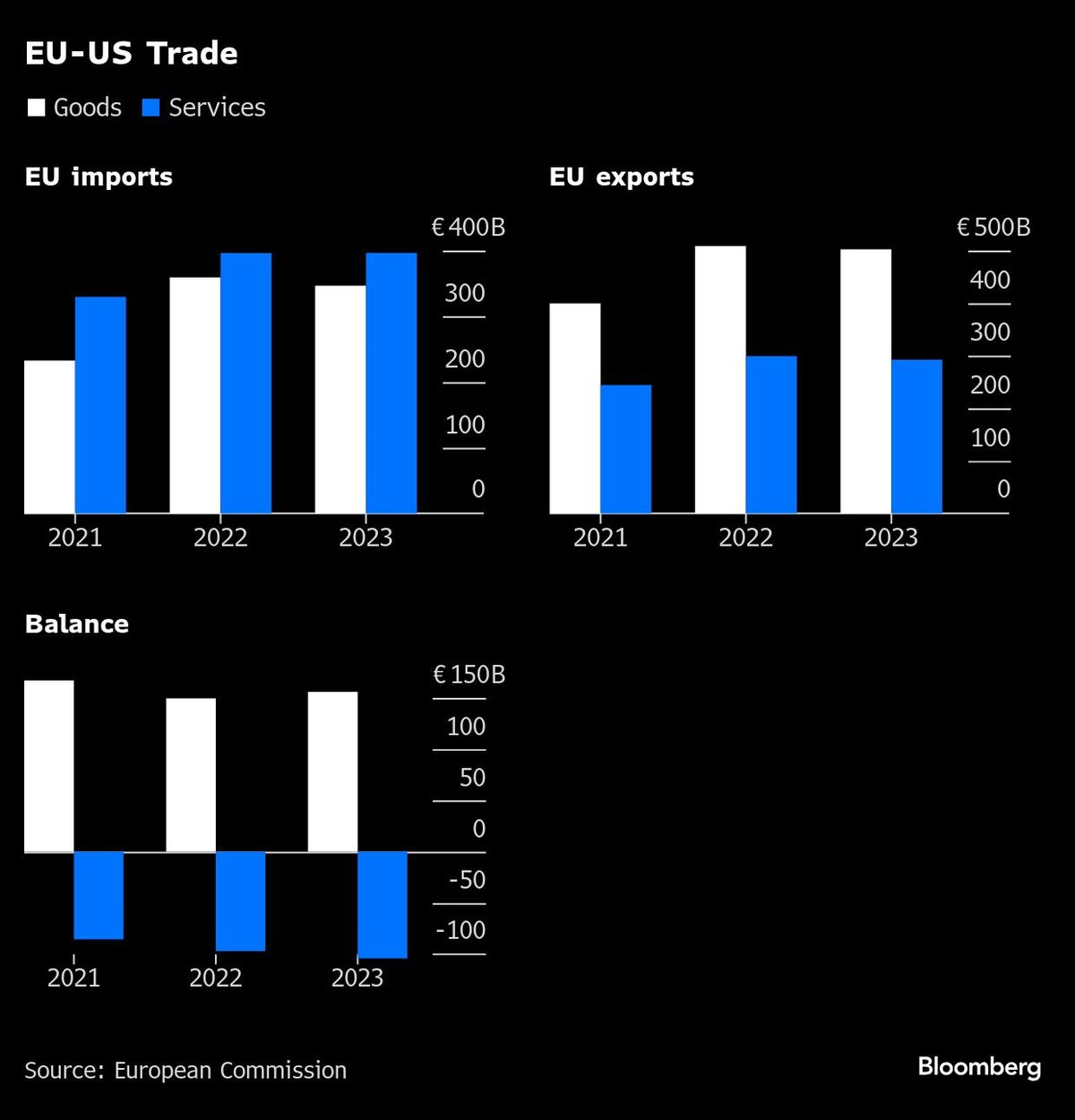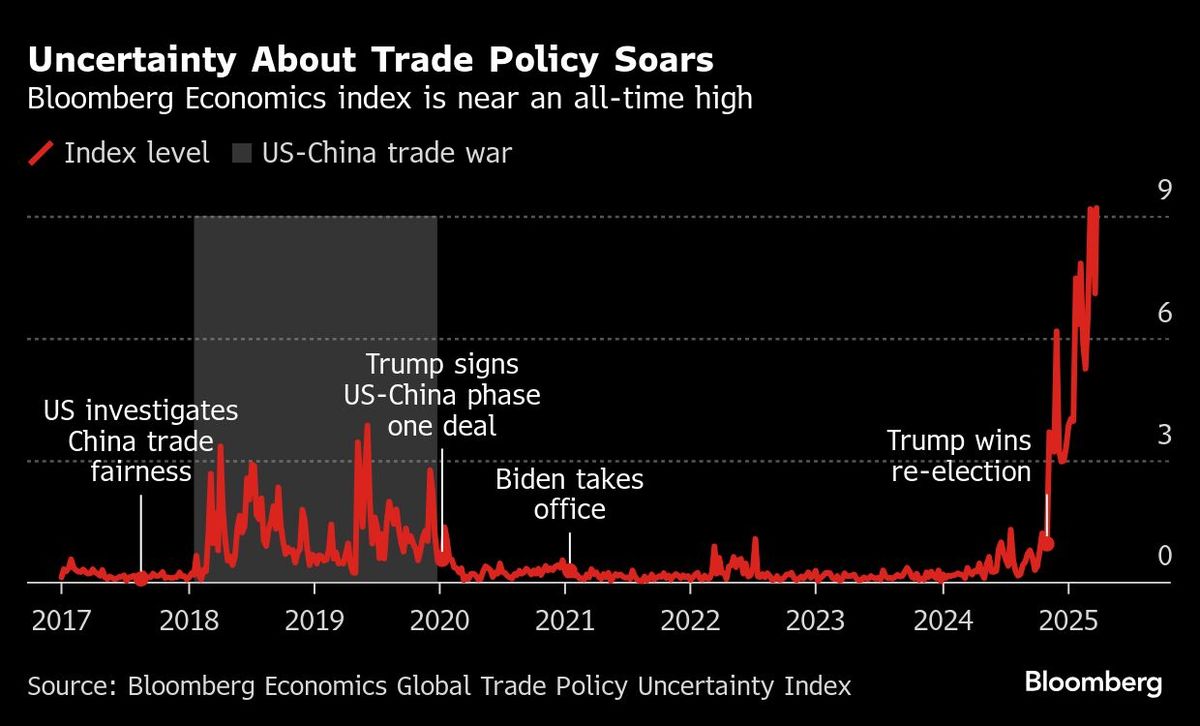
(April 10): The European Union (EU) will delay for 90 days the implementation of its counter-tariffs against the US over the 25% duties President Donald Trump imposed on the bloc’s steel and aluminium exports last month.
The EU will move forward with the tariffs that would hit around €21 billion (US$23.2 billion or RM103.93 billion) of US goods and then immediately suspend them when they take effect, according to a spokesperson for the European Commission, which handles trade matters for the bloc.
The move comes just hours after Trump announced a 90-day pause before a 20% “reciprocal” tariff rate was set to hit nearly all EU exports. That rate will now be 10%.
Commission President Ursula von der Leyen said she wants to give negotiations with the US a chance.
“If negotiations are not satisfactory, our countermeasures will kick in,” she wrote on X. “Preparatory work on further countermeasures continues. As I have said before, all options remain on the table.”
The euro extended its gains in the wake of the announcement, rising 1.1% to US$1.1068.
In addition to the 25% tariff on EU steel and aluminium exports, the US hit the bloc’s cars and some auto parts with a 25% levy. Trump has said he will announce additional tariffs on lumber, semiconductor chips and pharmaceutical products. All of Trump’s new tariffs are hitting around €380 billion of EU goods.
The countermeasures that the EU prepared, which were backed by all member states except Hungary, were due to target politically sensitive American states and include products such as soybeans from Louisiana, home to House Speaker Mike Johnson, as well as diamonds, agricultural products, poultry and motorcycles.
The bloc has been preparing a response to Trump’s various actions. Von der Leyen has previously said the EU “holds a lot of cards”, including retaliatory tariffs and targeting American services and technology companies.
France, Germany and other countries have called on the commission to consider deploying the bloc’s anti-coercion instrument — the EU’s most powerful trade tool, designed to strike back against nations that use trade and economic measures coercively.
In parallel, the bloc followed a strategy of waiting to let the economic and financial fallout of Trump’s global tariffs play out, while also diversifying and expanding trade relations with like-minded nations around the world.
Trump has repeatedly attacked the EU, the US’s largest trading partner, saying it was formed to “screw” the US and that the bloc’s trade-in-goods surplus is evidence of an unfair relationship. The EU’s trade weighted average tariff rate was 2.7% in 2023, according to World Trade Organization data.
“They come up with rules and regulations that are just designed for one reason: that you can’t sell your product in those countries,” Trump said earlier this week. “And we are not going to let that happen.”
The EU’s trade chief, Maros Sefcovic, discussed parameters of possible engagement on trade issues with his American counterparts late on Tuesday, but talks have so far yielded little progress, and US officials don’t appear to yet have a clear negotiating mandate from Trump, according to people familiar with the discussions.
An EU spokesman said he’s not aware of any planned meetings between Sefcovic and the US.
The commission is working on a “term sheet” of potential areas for negotiation, including lower tariffs, regulations and standards, Bloomberg previously reported.
While reducing all other rates to 10%, the US lifted its so-called reciprocal duties on China to 125%, which had the net effect of lowering the average US tariff rate only marginally to 26.25%, from 26.85% before Trump’s Truth Social post on Wednesday, according to analysis by Bloomberg Intelligence.
EU ambassadors were expected to have a discussion on the the US-China trade war, the people said. EU officials have raised concerns about the possibility that Beijing seeks to divert its goods towards Europe, and in that case, the bloc would need to explore remedies.
Uploaded by Tham Yek Lee
- First shockwaves of Trump’s tariffs are about to hit the world economy
- Crude palm oil's discount to soybean likely until 3Q, may spur Indian demand — analysts
- Asian stocks set for mixed open, US futures dip
- Oil retreats with Ukraine-Russia truce falls apart, US-Iran talks in focus
- Penang's Mutiara Line LRT project on track and on schedule, says project owner
- MORNING CALL: 21/4/25
- Japan embraces lab-made fuels despite costs, climate concerns
- Oil retreats with Ukraine-Russia truce falls apart, US-Iran talks in focus
- Crude palm oil's discount to soybean likely until 3Q, may spur Indian demand — analysts
- AI revolution in Malaysia’s accounting sector: A pathway to digital transformation



